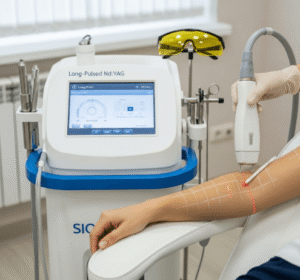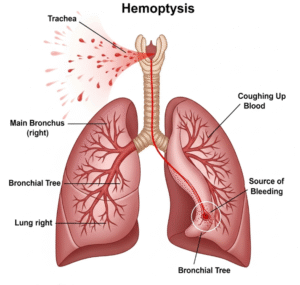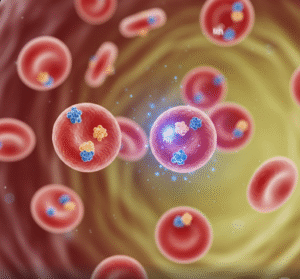Overview
Cluster C personality disorders are a group of mental health conditions marked by anxious, fearful thinking and behavior. People with these disorders often struggle with chronic worry, perfectionism, dependence, or fear of criticism and rejection. Unlike other clusters, Cluster C is generally more inwardly directed, and people with these disorders may be more likely to seek help due to distress caused by their symptoms.
What is Personality Disorders Cluster C?
Cluster C is one of three personality disorder clusters defined by the DSM-5 (Diagnostic and Statistical Manual of Mental Disorders). It includes three distinct disorders that are characterized by high levels of anxiety and avoidance:
- Avoidant Personality Disorder (AvPD): Extreme social inhibition, fear of rejection, and low self-esteem.
- Dependent Personality Disorder (DPD): Excessive need to be taken care of, leading to submissive and clinging behavior.
- Obsessive-Compulsive Personality Disorder (OCPD): Preoccupation with orderliness, control, and perfectionism at the expense of flexibility and efficiency.
These disorders often interfere with work, relationships, and emotional well-being, but many people with Cluster C disorders are aware of their difficulties and are motivated to change.
Symptoms
Each disorder in Cluster C has its own characteristics, but they share common symptoms such as fearfulness, avoidance, and internalized anxiety.
Avoidant Personality Disorder:
- Intense fear of criticism or rejection
- Avoidance of social or occupational activities requiring interpersonal contact
- Feelings of inadequacy
- Reluctance to take personal risks
- Extreme sensitivity to negative evaluation
Dependent Personality Disorder:
- Difficulty making decisions without reassurance
- Fear of being left to take care of oneself
- Submissiveness and clinging behavior
- Urgent seeking of new relationships when one ends
- Difficulty expressing disagreement due to fear of loss of support
Obsessive-Compulsive Personality Disorder:
- Excessive concern with order, rules, and details
- Perfectionism that interferes with task completion
- Rigid adherence to moral or ethical codes
- Reluctance to delegate tasks
- Stubbornness or inflexibility
- Hoarding behavior (sometimes)
Causes
The development of Cluster C personality disorders is influenced by multiple factors:
- Genetic vulnerability: Personality traits such as shyness or behavioral inhibition may be inherited.
- Childhood experiences: Overprotective, controlling, or neglectful parenting can contribute to fear and dependency.
- Environmental stressors: Chronic rejection, bullying, or trauma may shape maladaptive personality patterns.
- Attachment issues: Disruptions in secure attachment during early childhood can affect self-confidence and independence.
There is no single cause, but a combination of biological and environmental factors typically plays a role.
Risk Factors
Risk factors that increase the likelihood of developing Cluster C disorders include:
- Family history of anxiety or personality disorders
- Temperamental traits such as sensitivity, shyness, or fearfulness
- Early exposure to criticism or rejection
- History of abuse, neglect, or abandonment
- Parenting that was overly controlling or emotionally distant
- Co-occurring anxiety or depressive disorders
Complications
Untreated Cluster C personality disorders can lead to significant emotional and functional difficulties:
- Social isolation and loneliness
- Depression and chronic anxiety
- Poor occupational performance
- Dependence on others in unhealthy relationships
- Impaired decision-making
- Reduced quality of life
- Higher risk of developing other mental health disorders, such as OCD or generalized anxiety disorder
Despite these challenges, Cluster C disorders often respond well to therapy, especially when treatment begins early.
Prevention
While personality disorders cannot always be prevented, certain strategies may reduce their severity or impact:
- Supportive and secure early childhood environments
- Teaching emotional regulation and problem-solving in children
- Encouraging independence and self-confidence from an early age
- Early identification and support for children with extreme shyness or anxiety
- Reducing stigma around mental health and promoting open communication
- Treating anxiety and mood disorders promptly before patterns become rigid
Treatment Options in Korea
South Korea offers excellent treatment for Cluster C personality disorders through a combination of psychotherapy, psychiatry, and supportive care. Treatment options include:
- Psychotherapy (first-line treatment):
- Cognitive Behavioral Therapy (CBT): Helps challenge maladaptive thoughts and fears.
- Schema Therapy: Focuses on core beliefs and emotional patterns developed in childhood.
- Psychodynamic Therapy: Explores unconscious emotional conflicts.
- Assertiveness Training & Social Skills Therapy: Especially helpful for avoidant and dependent traits.
- Medication:
- While no medications are approved specifically for personality disorders, SSRIs and anti-anxiety medications are commonly prescribed to treat co-occurring symptoms such as depression or anxiety.
- Group Therapy & Psychoeducation:
- Korean clinics increasingly use group-based approaches to build social confidence and support networks.
- Digital and Community-Based Support:
- Mental health apps and online therapy platforms are expanding access for those hesitant to seek in-person help.
- Community mental health centers offer long-term counseling and vocational training.
- Specialized Clinics and Hospitals:
- Leading facilities like Asan Medical Center, Samsung Medical Center, and Seoul National University Hospital provide integrated psychiatric care, tailored to personality and anxiety-related disorders.
- Many hospitals offer English-speaking services for international patients or medical tourists.













